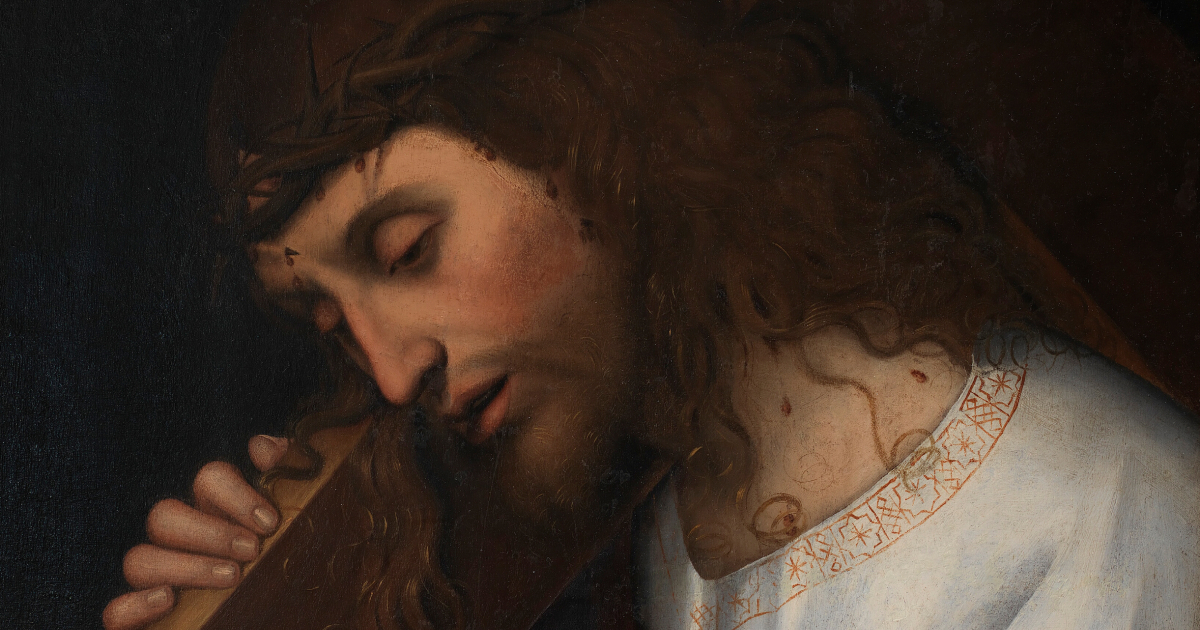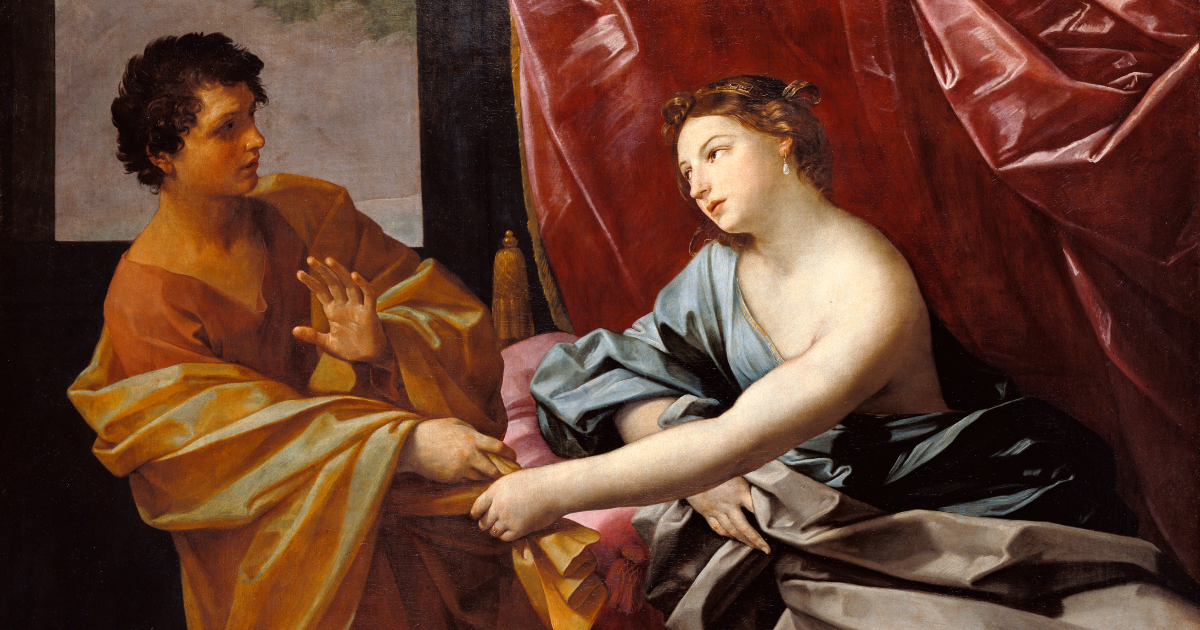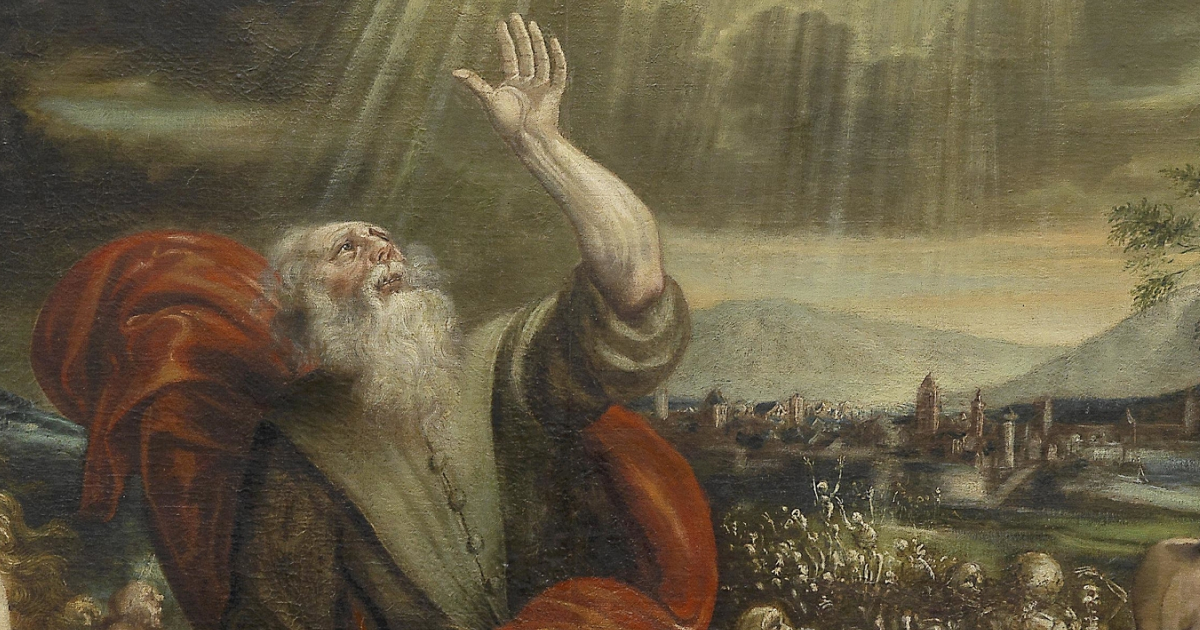I’m filled with a newfound appreciation for language. One in particular. It follows a trip to Hampshire on the south coast. But, no, I am not talking about English as spoken in rural Hampshire. Rather, Latin.
For my week wasn't spent on beaches or hiking the lovely coastal trails, rather sitting next to priests, seminarians and retired octogenarians who served in posts ranging from the merchant navy to lawyers, as we attended the Latin Mass Society’s annual residential Latin course.
The motivations that had drawn us to the course, which for some was an introductory foray into the ancient tongue, for others the shoring up of already-laid foundations, were diverse. Yet among our variety of reasons – not all attending were observant Catholics either – there underlay a curious unity of purpose.
For there was an understanding that learning this ancient language is not only beneficial individually – intellectually and spiritually – but also that it connects us to a greater whole beyond ourselves.
Whether connecting to Virgil’s Æneid or to Marcus Aurelius or to the centuries of writings and prayers and the tradition of the Church, the sentiment was the same: No man is an island, and studying this language brings us out of our own narrow confines and connects us to something much older and greater.
Someone once remarked to me that Latin should be for (Western) Catholics what Arabic is to Muslims. It is, after all, the sacred language of the Church. This person lamented that today we neglect this sanctified language that has a perennial, reinforced power to bring together disparate tribes, nationalities and tongues.
One may retort, of course, that Jesus may never have spoken it himself (Mel Gibson’s Passion of the Christ takes the debatable but defensible position that He did speak it during the interrogation with Pontius Pilate), or that the Apostolic Church has more than one sacred language – the New Testament was written in Greek, after all.
These are valid contentions – to a degree. But they do not diminish Latin’s mysteriously central place in Christian history, particularly in the West.
The traditional patristic understanding is that, being one of the three languages nailed to the Cross with Christ (alongside Hebrew and Greek), expressing those immortal words Iesus Nazarenus Rex Iudaeorum, Latin was thus consecrated for use down the ages having communicated, albeit unwittingly, the divinity and office of Jesus during the Passion.
Furthermore, it is almost certain that a number of the Apostles spoke it. Tradition tells us that Saint James the Great preached in Spain – where the spoken language was known to be Latin – and Scripture tells us that Saint Paul himself was a Roman citizen and was able with ease to converse with government officials and people around the Mediterranean.
Furthermore, the Book of Acts concludes by telling us that both Saints Peter and Paul were preaching the Faith in Rome when only one particular language reigned supreme.
Down the centuries, Latin-rite Catholicism would come to be – by far – the most significant and populous form of Apostolic Christianity, able to touch the hearts and convert such diverse peoples as the Germanic barbarian tribes, the Celts, the Asiatic Magyars, the Finns, the Western Slav people of the Poles, Czechs and Slovaks, the Croats, the Indo-European Lithuanians; and later the native Americans, the Philippine natives, Goan Indians, Vietnamese, Japanese, Hawaiins and to this day Congolese, Angolans, Nigerians and Rwandans – long after the language was no longer used in vernacular settings.
With generation upon generation honouring the sanctity and propriety of reserving Latin for sacred worship, this culminated in Pope John XXIII (who convoked the Second Vatican Council; and was by all accounts a reformer, optimist, and moderniser) releasing Veterum Sapientia: On the Promotion of the Study of Latin in 1962.
This Apostolic Constitution, meaning "The Wisdom of the Ancients", declared pithily:
“he Catholic Church has a dignity far surpassing that of every merely human society, for it was founded by Christ the Lord. It is altogether fitting, therefore, that the language it uses should be noble, majestic, and non-vernacular.
“In addition, the Latin language ‘can be called truly catholic’. It has been consecrated through constant use by the Apostolic See, the mother and teacher of all Churches, and must be esteemed 'a treasure…of incomparable worth'. It is a general passport to the proper understanding of the Christian writers of antiquity and the documents of the Church’s teaching.”
John XXIII then added a reasoning particularly apt to the modern world – the one that appears happy to tear down statues, to condemn the actions of ancestors without appraisal for their virtues and sacrifices, while languishing in ignorance about their actual history – by stating:
“ is also a most effective bond, binding the Church of today with that of the past and of the future in wonderful continuity.”
RELATED: Leading British figures appeal for access to Latin Mass in echo of ‘Agatha Christie Letter’
Echoing, almost verbatim, conservative philosopher Edmund Burke’s description of society being a contract “between those who are dead, those who are living, and those who are to be born”, John XXIII explained how Latin provides vitally embedded roots for unmoored modern man, unsure of his place in history and the world, blown tempestuously around in the storm of the ever-changing winds and superficial fads of modernity.
Indeed, the language itself is precise, highly logical, and follows beautiful rhythms and patterns.
Another way that it connects one to the greater civilisation, in which we all share, inevitably lies in the fact that learning Latin tremendously assists with learning other languages. This is the case not only for getting a head start with cognates and vocabulary in the Romantic languages such as French or Romanian, but also (perhaps surprisingly) for languages like German – which is much closer grammatically to Latin – having an almost identical case system that often opts to put verbs at the end of the sentence.
The fact that Latin gives rise to other languages perhaps conveys a deeper truth. While Arabic was often imposed and ended up erasing the host language and culture, from the Berbers of Morocco to the Mesopotamians of Iraq, this was not the case with Latin and Catholicism.
Rather, Latin and Catholicism brought out the particularities of a host nation or culture, nourishing those aspects and helping them to be more authentically what they are. There is a reason that Japanese Catholicism is so artistically unique – as indeed Spanish and French Catholicism are. Grace builds upon nature – it doesn’t erase it.
Latin helped give rise to and supplement civilisational developments within each medieval Catholic nation. Nearly all European languages have plenty of Latin loan-words – for a long time the elites of Europe were often tri-lingual, speaking Latin alongside the language(s) of court – and these languages were each able to become their own unique and idiosyncratic form by using Latin’s sure foundations and, of course, its script.
Catholicism does a similar thing. It doesn’t turn us all into little duplicates or robots. Instead, it polishes and brings out the good potentialities which are already there, while helping to mitigate our faults and weaknesses.
Finally, those who frequently pray or attend the liturgy in Latin will know the following for themselves. It has an ontological power of its own. Prayer appears more mystically focussed and effective in Latin for reasons that, admittedly, are hard to fully explain in the words we have available.
But perhaps Catholics can at least sense why this might be the case. If Christ’s cloak or Saint Paul’s handkerchief could be imbued with an element of divine power to heal and aid the faithful, due to their prolonged proximity to sanctity, how much more might that language used for prayer by the Apostles and saints for thousands of years be able to take us beyond the profanities of every day vernacular speech to another realm.
Would it be unthinkable to suggest that this language too may have acquired, down the centuries, power similar to that of the sacred relics we venerate?
So, for those who haven’t yet tried establishing such contact through the Latin language – try it! And if it doesn’t click at first, be patient and give it a bit of time. Because afterwards you are unlikely to see the world in the same light again.
RELATED: Petitions defending Latin Mass keep rolling in
Photo: An image depicting, circa 975, the German poet and chronicler Hrosvitha ( 932 - 1002), reading from a book to an enraptured audience. As a young woman she entered the Benedictine convent of Gandersheim, near Gottingen in Germany. Her works, written in Latin, comprise of poems and historical chronicles in verse. (Photo by Hulton Archive/Getty Images.)
I’m filled with a newfound appreciation for language. One in particular. It follows a trip to Hampshire on the south coast. But, no, I am not talking about English as spoken in rural Hampshire. Rather, Latin.
For my week wasn't spent on beaches or hiking the lovely coastal trails, rather sitting next to priests, seminarians and retired octogenarians who served in posts ranging from the merchant navy to lawyers, as we attended the Latin Mass Society’s annual residential Latin course.
The motivations that had drawn us to the course, which for some was an introductory foray into the ancient tongue, for others the shoring up of already-laid foundations, were diverse. Yet among our variety of reasons – not all attending were observant Catholics either – there underlay a curious unity of purpose.
For there was an understanding that learning this ancient language is not only beneficial individually – intellectually and spiritually – but also that it connects us to a greater whole beyond ourselves.
Whether connecting to Virgil’s <em>Æneid</em> or to Marcus Aurelius or to the centuries of writings and prayers and the tradition of the Church, the sentiment was the same: <em>No man is an island</em>, and studying this language brings us out of our own narrow confines and connects us to something much older and greater.
Someone once remarked to me that Latin should be for (Western) Catholics what Arabic is to Muslims. It is, after all, the sacred language of the Church. This person lamented that today we neglect this sanctified language that has a perennial, reinforced power to bring together disparate tribes, nationalities and tongues.
One may retort, of course, that Jesus may never have spoken it himself (Mel Gibson’s <em>Passion of the Christ</em> takes the debatable but defensible position that He did speak it during the interrogation with Pontius Pilate), or that the Apostolic Church has more than one sacred language – the New Testament was written in Greek, after all.
These are valid contentions – to a degree. But they do not diminish Latin’s mysteriously central place in Christian history, particularly in the West.
The traditional patristic understanding is that, being one of the three languages nailed to the Cross with Christ (alongside Hebrew and Greek), expressing those immortal words <em>Iesus Nazarenus Rex Iudaeorum</em>, Latin was thus consecrated for use down the ages having communicated, albeit unwittingly, the divinity and office of Jesus during the Passion.
Furthermore, it is almost certain that a number of the Apostles spoke it. Tradition tells us that Saint James the Great preached in Spain – where the spoken language was known to be Latin – and Scripture tells us that Saint Paul himself was a Roman citizen and was able with ease to converse with government officials and people around the Mediterranean.
Furthermore, the Book of Acts concludes by telling us that both Saints Peter and Paul were preaching the Faith in Rome when only one particular language reigned supreme.
Down the centuries, Latin-rite Catholicism would come to be – by far – the most significant and populous form of Apostolic Christianity, able to touch the hearts and convert such diverse peoples as the Germanic barbarian tribes, the Celts, the Asiatic Magyars, the Finns, the Western Slav people of the Poles, Czechs and Slovaks, the Croats, the Indo-European Lithuanians; and later the native Americans, the Philippine natives, Goan Indians, Vietnamese, Japanese, Hawaiins and to this day Congolese, Angolans, Nigerians and Rwandans – long after the language was no longer used in vernacular settings.
With generation upon generation honouring the sanctity and propriety of reserving Latin for sacred worship, this culminated in Pope John XXIII (who convoked the Second Vatican Council; and was by all accounts a reformer, optimist, and moderniser) releasing <em>Veterum Sapientia</em>: <em>On the Promotion of the Study of Latin </em>in 1962.
This Apostolic Constitution, meaning "The Wisdom of the Ancients", declared pithily:
“[T]he Catholic Church has a dignity far surpassing that of every merely human society, for it was founded by Christ the Lord. It is altogether fitting, therefore, that the language it uses should be noble, majestic, and non-vernacular.
“In addition, the Latin language ‘can be called truly catholic’. It has been consecrated through constant use by the Apostolic See, the mother and teacher of all Churches, and must be esteemed 'a treasure…of incomparable worth'. It is a general passport to the proper understanding of the Christian writers of antiquity and the documents of the Church’s teaching.”
John XXIII then added a reasoning particularly apt to the modern world – the one that appears happy to tear down statues, to condemn the actions of ancestors without appraisal for their virtues and sacrifices, while languishing in ignorance about their actual history – by stating:
“[Latin] is also a most effective bond, binding the Church of today with that of the past and of the future in wonderful continuity.”<br><br><strong><em>RELATED: <a href="https://catholicherald.co.uk/leading-british-figures-appeal-for-access-to-latin-mass-in-echo-of-agatha-christie-letter/?swcfpc=1"><mark style="background-color:rgba(0, 0, 0, 0)" class="has-inline-color has-vivid-cyan-blue-color">Leading British figures appeal for access to Latin Mass in echo of ‘Agatha Christie Letter’</mark></a></em></strong>
Echoing, almost verbatim, conservative philosopher Edmund Burke’s description of society being a contract “between those who are dead, those who are living, and those who are to be born”, John XXIII explained how Latin provides vitally embedded roots for unmoored modern man, unsure of his place in history and the world, blown tempestuously around in the storm of the ever-changing winds and superficial fads of modernity.
Indeed, the language itself is precise, highly logical, and follows beautiful rhythms and patterns.
Another way that it connects one to the greater civilisation, in which we all share, inevitably lies in the fact that learning Latin tremendously assists with learning other languages. This is the case not only for getting a head start with cognates and vocabulary in the Romantic languages such as French or Romanian, but also (perhaps surprisingly) for languages like German – which is much closer grammatically to Latin – having an almost identical case system that often opts to put verbs at the end of the sentence.
The fact that Latin gives rise to other languages perhaps conveys a deeper truth. While Arabic was often imposed and ended up erasing the host language and culture, from the Berbers of Morocco to the Mesopotamians of Iraq, this was not the case with Latin and Catholicism.
Rather, Latin and Catholicism brought out the particularities of a host nation or culture, nourishing those aspects and helping them to be more authentically what they are. There is a reason that Japanese Catholicism is so artistically unique – as indeed Spanish and French Catholicism are. Grace builds upon nature – it doesn’t erase it.
Latin helped give rise to and supplement civilisational developments within each medieval Catholic nation. Nearly all European languages have plenty of Latin loan-words – for a long time the elites of Europe were often tri-lingual, speaking Latin alongside the language(s) of court – and these languages were each able to become their own unique and idiosyncratic form by using Latin’s sure foundations and, of course, its script.
Catholicism does a similar thing. It doesn’t turn us all into little duplicates or robots. Instead, it polishes and brings out the good potentialities which are already there, while helping to mitigate our faults and weaknesses.
Finally, those who frequently pray or attend the liturgy in Latin will know the following for themselves. It has an ontological power of its own. Prayer appears more mystically focussed and effective in Latin for reasons that, admittedly, are hard to fully explain in the words we have available.
But perhaps Catholics can at least sense why this might be the case. If Christ’s cloak or Saint Paul’s handkerchief could be imbued with an element of divine power to heal and aid the faithful, due to their prolonged proximity to sanctity, how much more might that language used for prayer by the Apostles and saints for thousands of years be able to take us beyond the profanities of every day vernacular speech to another realm.
Would it be unthinkable to suggest that this language too may have acquired, down the centuries, power similar to that of the sacred relics we venerate?
So, for those who haven’t yet tried establishing such contact through the Latin language – try it! And if it doesn’t click at first, be patient and give it a bit of time. Because afterwards you are unlikely to see the world in the same light again. <br><br><strong><em>RELATED: <a href="https://catholicherald.co.uk/petitions-defending-latin-mass-keep-rolling-in/?swcfpc=1"><mark style="background-color:rgba(0, 0, 0, 0)" class="has-inline-color has-vivid-cyan-blue-color">Petitions defending Latin Mass keep rolling in</mark></a></em></strong><br><br><em>Photo: An image depicting, circa 975, the German poet and chronicler Hrosvitha ( 932 - 1002), reading from a book to an enraptured audience. As a young woman she entered the Benedictine convent of Gandersheim, near Gottingen in Germany. Her works, written in Latin, comprise of poems and historical chronicles in verse. (Photo by Hulton Archive/Getty Images.)</em>

















